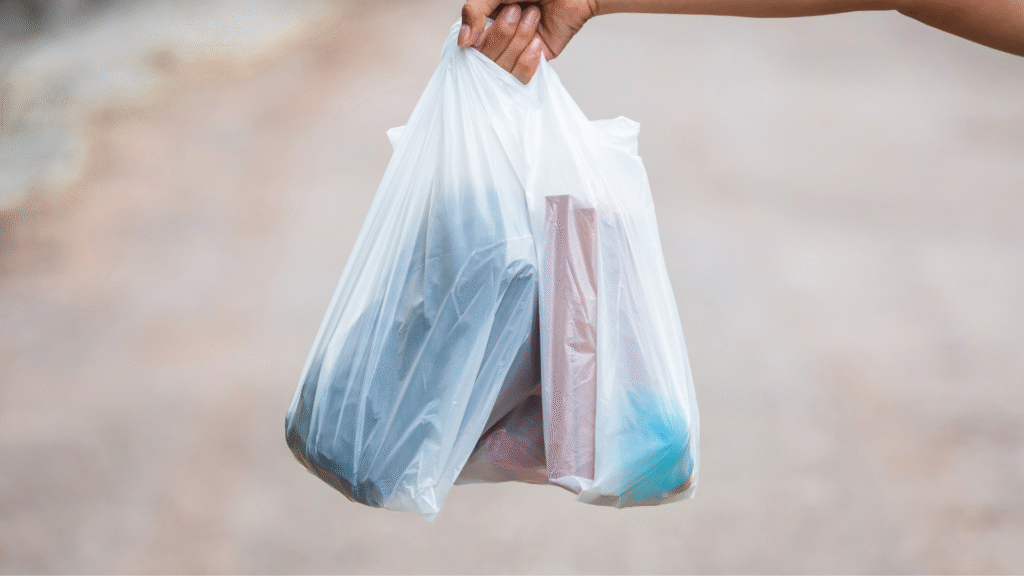Plastic bags are commonly used to pack, store, and carry products. However, they are often associated with environmental problems. After all, they are said to take hundreds of years to decompose, polluting landfills and oceans.
While they are considered the key culprits of pollution, the full story is even more complicated. A lot of what people believe about plastic bags is not entirely made up of facts; often, it’s only a sliver of the truth or an old statistic. In order to make informed decisions, one needs to distinguish myths from realities and look at the true picture.
In this post, we’ll debunk popular myths about plastic shopping bags and share the truth about their environmental impact.
Myth 1: Plastic Bags Are the Greatest Polluters in the World
Plastic bags are a commonly used item. Therefore, it is easy to find them in those heaps of waste. However, they are just a tiny percentage of the world’s waste. Environmental studies have found that plastic bag litter constitutes less than 1% in most nations.
Of course, waste is bad for the environment regardless of its percentage. But it is not good to single out plastic bags as the major culprit. The major pollutants are vehicle emissions, fuel combustion, heavy metals, industrial waste and sewage, and agricultural runoff.
Therefore, plastic bags are just a tiny component of the broader pollution problem.
Myth 2: All Plastic Bags are Used Once
Even though they are often referred to as “single-use,” most plastic bags are used more than just once by consumers. Trash liners, pet waste, and lunch and groceries are some of the ways people reuse them.
The majority of households reuse grocery bags at least two or three times before throwing them out. This lowers the plastic waste.
Reusing plastic bags can also have a smaller environmental footprint than using new paper bags or cotton totes, which in many cases require more energy and resources to produce.
Myth 3: Paper or Cotton Bags Are Always the More Environmentally Friendly Choice
Most people think simply using paper or cloth is obviously better for the planet.
Paper bags are not great for the environment. This is because they require cutting down trees, loads of water, and more fuel for transportation since paper is heavier. Cotton bags, however, require a ton of water, pesticides, and energy to grow and convert.
A study by the UK Environment Agency found that a cotton bag needs to be used 131 times to have a smaller impact on global warming than a single-use polyethylene plastic bag that’s properly disposed of. In comparison, a paper bag needs to be reused three to four times to match that result.
Myth 4: It Takes Thousands of Years for Plastic Bags to Decompose
You may have heard that plastic bags take centuries to vanish, but this may not be the case for every plastic bag. Today’s plastics decompose more quickly under sunlight and when heated. Unlike organic materials, they don’t completely biodegrade — but they will break down and lose their original form.
The environmental impact of plastic bags is based on how they are discarded. Bags that get thrown into landfills may persist longer because they don’t have oxygen and sunlight to shake their structural molecules.
More to the point, recycling and waste-to-energy facilities can process plastic bags when they are collected properly.
Myth 5: Plastic Bags Are Not Recyclable
Plastic shopping bags are recyclable, but have a fairly complicated path to the recycle bin. You can’t just throw them into regular curbside recycling bins because they get stuck in sorting machines. But many supermarkets and recycling centers have also devoted bins for soft plastics, including grocery bags.
Melted down correctly, plastic bags are turned into new bags, composite lumber, park benches, and other products, including paving materials. Encouraging people to bring back used bags can help a lot in reducing trash.
Myth No. 6: Prohibiting Plastic Bags Is Always Good for the Environment
Such bans may look effective, but they can give rise to their own problems over time. In areas where single-use plastic bags were prohibited, studies found that the use of thick plastic trash bags increased. These thicker options need more plastic to make, actually increasing overall plastic use rather than decreasing it.
For example, if shoppers stop getting lightweight plastic bags at checkout, they might start buying plastic bin liners for home use instead—canceling out the benefits of the ban. This shows how good policies can backfire if they aren’t supported by public education and proper waste management systems.
Myth 7: Plastic bags are the ultimate culprit of Marine Pollution
Though images of plastic bags floating in the ocean are disturbing, they constitute just a small portion of marine debris. Fishing gear, industrial trash, and microplastics from garments and tires dominate by far.
The plastic bag impact is real, but it’s not as big as it’s often made out to be. Rather, all plastic waste — not just bags but also straws, bottles, and packaging — should be reduced.
Myth 8: The Future of Plastic Bags is NOT Sustainable
Technology and innovation are transforming how we make, use, and dispose of plastic. Biodegradable and compostable bags are becoming more popular now. A few manufacturers use recycled plastic or even bio-based pellets of corn or sugarcane.
The Middle View: The Key Is Responsible Use
At the end of the day, myths about plastic shopping bags stem mainly from misinformation and emotional responses rather than reality. Plastic bags do present environmental problems, but they also offer advantages — lightweight construction, minimal raw materials used, and the easy ability to get reused hundreds of times — that many alternative materials can’t match.
A balanced approach is required if we really want to reduce pollution:
- Reuse whenever possible. If you have old bags, don’t take new ones.
- Recycle properly. Take them back to the collection points in stores.
- Support innovation. Opt for products that are recycled or biodegradable.
- Be informed. Know realistic plastic bag waste facts before making any assumptions.





